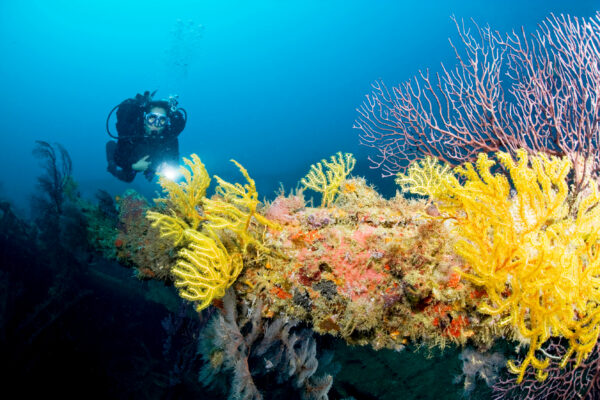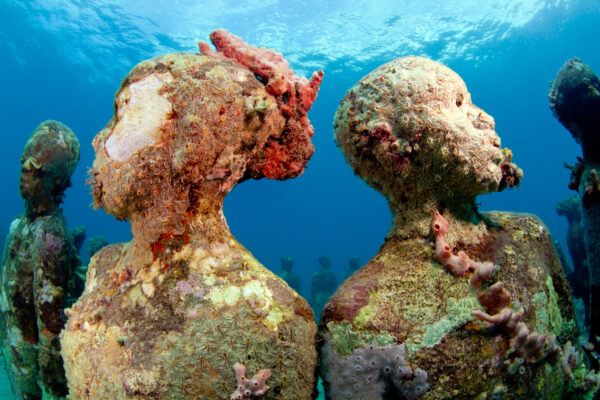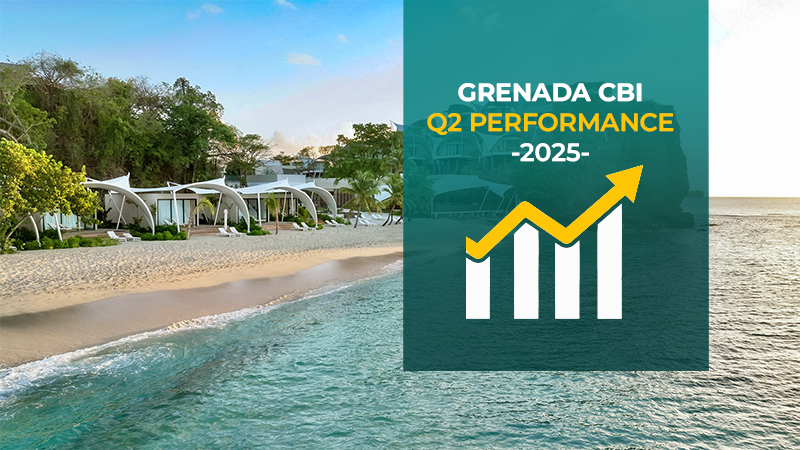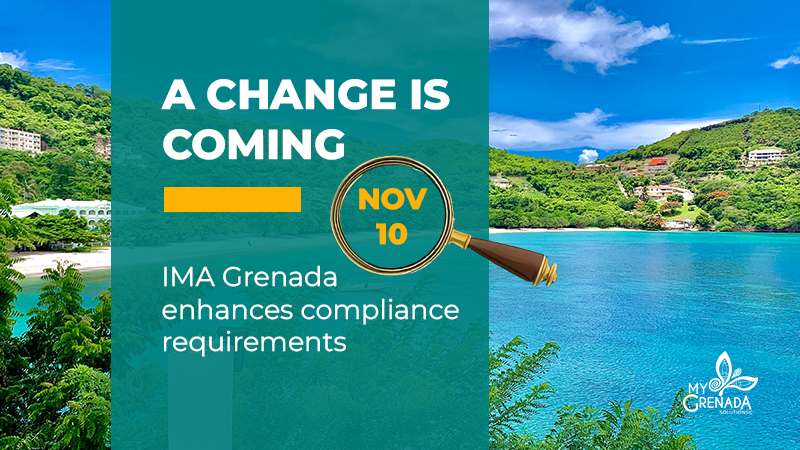Grenada – With the Caribbean and Atlantic Sea as its cradle, Grenada has always been intertwined with the ocean. But with rising sea levels, coral bleaching and overfishing placing marine systems under mounting pressure, the need for ocean protection has become urgent and unavoidable.
In a defining move, Grenada signed the Biodiversity Beyond National Jurisdiction (BBNJ) Treaty in December 2024, joining an international effort to protect marine biodiversity beyond national waters. This step not only reinforces local commitment but connects Grenada’s efforts with global environmental governance.
According to Ambassador Jerry Enoe, Special Envoy for Oceans and Blue Economy Advisor within the Ministry of Blue Economy and Marine Affairs, the treaty is more than symbolic. “Signing and eventual ratification of the BBNJ Treaty signals Grenada’s firm commitment to equitable, science-based ocean governance beyond national jurisdiction,” he explained.
In practical terms, the BBNJ Treaty enables access to marine genetic resources, introduces fair benefit-sharing mechanisms, and opens the door to international capacity-building support. “For a Small Island Developing State like Grenada, whose marine space is over 70 times its landmass, this treaty is a tool to safeguard biodiversity, ensure fair participation in emerging ocean-based industries, and align with global best practices in marine conservation,” Enoe added.
Tourism remains a cornerstone of Grenada’s economy, but it must evolve to work in harmony with environmental preservation. Ambassador Enoe highlighted that sustainability is now central to how development is approached across sectors. “We are transitioning toward eco-marine tourism that complements reef conservation and coastal resilience,” he said.
Community-based tourism and eco-dive sites are receiving dedicated funding, and marine spatial planning tools are being developed by the Coastal Zone Management Unit to better manage overlapping demands from tourism, fishing, and conservation.
A Vision for Blue Growth
Grenada’s push for ocean protection and a sustainable ocean economy is rooted in its Blue Growth and Coastal Master Plan — a strategy focused on aligning marine protection with economic opportunity. The plan outlines a vision for sustainable marine tourism, fisheries, conservation, maritime transport, and renewable energy, all backed by investments in nature-based solutions, community engagement, and forward-thinking policy reform.
To lead this transformation, Grenada launched the Ministry of Blue Economy and Marine Affairs in the latter part of 2024. This dedicated ministry centralises responsibility for ocean governance and reflects Grenada’s intent to embed marine considerations into national development strategies. A forthcoming National Ocean Policy will serve as the blueprint for ensuring social, environmental and economic goals can coexist within Grenada’s marine space.
These efforts collectively demonstrate a shift from intention to action — where institutions, legislation and innovation converge to drive long-term change.
A Small Island with a Global Message
Grenada may be small in size, but its approach to marine conservation sets it apart in the region. When asked how Grenada compares to its neighbours, Ambassador Enoe noted: “We share similar challenges with our Caribbean neighbors, but Grenada has taken bold steps by institutionalising the blue economy at the ministerial level. Our integrated model links policy, investment, and science, and our proactive engagement in global agreements like the BBNJ Treaty puts us at the forefront of ocean diplomacy in the region.”
Grenada’s leadership is not just about action — it’s about sending a message to the world. As Enoe stated, “Small Island Developing States are custodians of vast ocean spaces. We are deeply vulnerable to ocean degradation, but we are also innovators, negotiators, and frontline defenders of marine ecosystems. The global community must treat us as equal partners—investing in our capacity, honoring our leadership, and collaborating with us to ensure a healthy, inclusive ocean future.”
And for Grenada, this is not a detached policy issue — it’s personal. “The ocean is not a backdrop, it’s our backbone. It sustains our economy, feeds our people, buffers our coasts, and shapes our identity. Ocean conservation is essential to our resilience, our development, and our sovereignty. It is both a duty and a destiny we embrace with determination.”
Preserving What We Love
Grenada’s coastal ecosystems — coral reefs, mangroves, and seagrass beds — are vital not just for biodiversity, but also for the economy and climate resilience. The country’s Marine Protected Areas (MPAs) form a critical line of defence, offering sanctuaries for marine life to recover and ecosystems to thrive.
As Ambassador Enoe explained, “Marine Protected Areas are central to our conservation strategy. They safeguard critical habitats like coral reefs and mangroves, enable fisheries recovery, and strengthen coastal resilience.” Grenada has set an ambitious goal to conserve at least 30% of its marine space by 2030, and importantly, is moving toward a co-management model that includes local communities. This ensures MPAs serve both environmental and socio-economic objectives.
Grenada’s MPA network includes:
- Molinière-Beauséjour MPA – Home to vibrant coral reefs and the world’s first underwater sculpture park
- Woburn–Clarke’s Court Bay MPA – A hub for mangrove protection and marine nurseries
- Sandy Island–Oyster Bed MPA (Carriacou) – Celebrated for its coral reefs and diverse marine life
- Grand Anse MPA – Supporting marine education and responsible recreation
- Levera MPA – A critical sanctuary for nesting sea turtles
To help fund MPA upkeep, the Grenada Tourism Authority has introduced a conservation fee for individuals visiting the MPAs. These funds go directly into the ongoing protection, monitoring and management of these marine areas — ensuring that both residents and visitors contribute to preserving what makes Grenada’s waters so special.
Complementing MPAs, closed fishing seasons are another key component of Grenada’s ocean strategy. These seasonal bans allow marine species to reproduce undisturbed and rebuild their populations. In 2025:
- Leatherback turtles are protected year-round.
- Lobster season is closed from 1 May to 31 August.
- Turtle and sea urchin (sea egg) season is closed from 1 April to 31 August.
These regulations are crucial for ensuring the long-term sustainability of fisheries — a resource that touches every facet of Grenadian life from food security to cultural heritage.
From Reef to Fork: A Lionfish Solution
Grenada is also tackling marine threats with creativity and community spirit. In response to the invasion of lionfish — a voracious, Indo-Pacific Ocean species that threatens native reef fish in the Atlantic Ocean and Caribbean Sea — Aquanauts Grenada has launched a lionfish control programme. Rather than dispose of the catch, they’ve turned it into a culinary and conservation opportunity.
In collaboration with the West Indies Brewery, Aquanauts hosts Lionfish Bites & Beats events that serve up this invasive species in delicious ways while educating the public on the importance of reef balance. The initiative is a winning combination of gastronomy, sustainability and local hospitality.
Art, Ecology and Culture: The Molinière Underwater Sculpture Park
One of the most imaginative expressions of Grenada’s environmental ethos is the Molinière Underwater Sculpture Park. Established within the Molinière-Beauséjour MPA, it is the world’s first underwater museum, featuring more than 100 sculptures designed by artist Jason deCaires Taylor and Grenadian artists.
These sculptures are more than art — they function as artificial reefs, attracting marine life and offering an alternative dive site to help relieve pressure on natural reefs. Depicting everyday Grenadian life, history, and culture, the installations also tell stories, spark dialogue and instill pride. Accessible by snorkel, dive or glass-bottom boat, the park is a beacon of eco-tourism and cultural innovation.
With each new initiative, Grenada affirms that its ocean is both a treasure and a responsibility. As the country boldly and proudly marks World Environment Day and World Oceans Day this June, it reinforces a growing truth: for Grenada, sustainability is not just a goal — it is a way of life.












